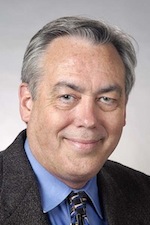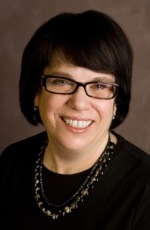University reaffirms support for investigative journalism
In an early-morning action, the Joint Finance Committee of the Wisconsin Legislature voted to adopt a motion that would separate the Wisconsin Center for Investigative Journalism from its collaboration with the students and staff of the School of Journalism and Mass Communication.
Motion 999 reads:
“Prohibit the Board of Regents from permitting the Center for Investigative Journalism to occupy any facilities owned or leased by the Board of Regents. In addition, prohibit UW employees from doing any work related to the Center for Investigative Journalism as part of their duties as a UW employee.”
UW-Madison officials reacted strongly to the budget provision, rejecting its attempt to limit university collaboration and emphasizing the center’s value to students and Wisconsin citizens.

Gary Sandefur
“Arbitrarily prohibiting UW–Madison employees from doing any work related to the Center for Investigative Journalism is a direct assault on our academic freedom; simply, it is legislative micromanagement and overreach at its worst,” says Gary Sandefur, dean of the College of Letters & Science, which oversees the journalism school.
“For 124 years, the College of Letters & Science has promoted a fearless tradition of sifting and winnowing in which our faculty, staff and students participate in teaching, research and public service to gain a deeper understanding of the world and help solve critical problems. Micromanagement like that posed by lawmakers on the Joint Finance Committee undermines our efforts. It is a threat to the tradition of the college, the university and the state.”
The Wisconsin Center for Investigative Journalism, founded in 2009, is a nonprofit, nonpartisan organization supported by private foundations, individuals and news organizations. Though it is housed in two small offices in Vilas Hall, it receives no funding from UW–Madison.
However, its innovative collaboration with the journalism school has won national acclaim. And its work has been cited favorably by a legislative committee as recently as last month. The center provides at least five paid internships each year to journalism students. The executive director is required to provide student-centered service each week, teaching topics such as computer-assisted reporting, interviewing techniques and crafting of in-depth news reports.

Deborah Blum
Deborah Blum, Helen Firstbrook Franklin Professor of Journalism and winner of a Pulitzer Prize, regards the center as an exceptional resource. As she challenges her students to create the kind of multidisciplinary packages required in a changing media landscape, she appreciates the center’s emphasis on analytical thinking, in-depth research and rigorous fact-checking.
“It not only helps make our students more skilled, it helps make them some of the most employable young journalists in the country,” says Blum. “The collaboration with WCIJ is one of remarkable value to our institution, and one that should not be lost.”
Finished pieces are available not only through the center’s website but through free distribution to news organizations. Reporting from the center has reached an estimated 25 million readers through more than 230 news outlets across Wisconsin and the United States.
In its short history, the center has racked up an array of statewide and national awards. In 2012, the Associated Press Media Editors honored the Center and university jointly as the first recipients of an award for Innovator of the Year for College Students.
“This is a smart and innovative way for a journalism school to lead investigative reporting,” the APME judges said.
At the time, Brant Houston, the center’s board president and Knight Chair in Investigative Reporting at the University of Illinois at Urbana-Champaign, called the collaboration at UW–Madison “one of the best models in the nation. The school and center have pioneered effective ways to involve students in producing award-winning journalism in the public interest.”
“Micromanagement like that posed by lawmakers on the Joint Finance Committee undermines our efforts. It is a threat to the tradition of the college, the university and the state.”
Gary Sandefur
In May, the center received eight awards (two gold, four silver and two bronze), including a sweep of the “Best Innovative Feature” category, from the Milwaukee Press Club. Student journalists bested seasoned professionals from across the state. The center has received 17 awards since 2010.
Master’s student Mario Koran, who will graduate in August, recently returned from a highly competitive student journalism institute run by The New York Times. Within this selective group, his work garnered him an additional scholarship, as chosen by Times staffers.
“It was a credit to the training I’d received through the Wisconsin Center for Investigative Journalism as well as the University of Wisconsin,” says Koran. “We have a rigorous fact checking system; it’s quite cumbersome to adjust to, but while we’re fact checking I’ve learned to put myself into that mindset. Without even being aware of it, this must be reflected in the quality of the news pieces I produce.”
This hard work has also produced results. Following a tip from the family member of an offender, Koran and his colleagues spent nine months researching potential flaws in the GPS monitoring system used by the state Department of Corrections. The Center’s work revealed that offenders have repeatedly been jailed when they may not have actually violated their monitoring conditions — disrupting their lives and costing the state time and money.
As chair of the Assembly Committee on Corrections, Rep. Garey Bies, R-Sister Bay, called a public hearing ten days after the center released its first story. Lawmakers specifically cited the center’s work. On May 13, the Joint Finance Committee voted unanimously to withhold funding until the Department of Corrections detailed its plan to use the money in its proposed GPS program expansion. The committee also ordered the department to do a study on the effective and efficient use of GPS monitoring.
Jack Mitchell, a member of the center’s board of directors and professor emeritus of journalism, says the center would continue its mission in another location if forced to leave its offices at UW–Madison. However, being off-site would likely diminish student participation.
“The best training for students is to actually do the work,” says Mitchell. “The experience here goes beyond the classroom. Students actually produce stories that get published and win awards, which is good for the students. And it is good for the public because they get the benefit of these investigative stories.”
—Susannah Brooks and Greg Bump

